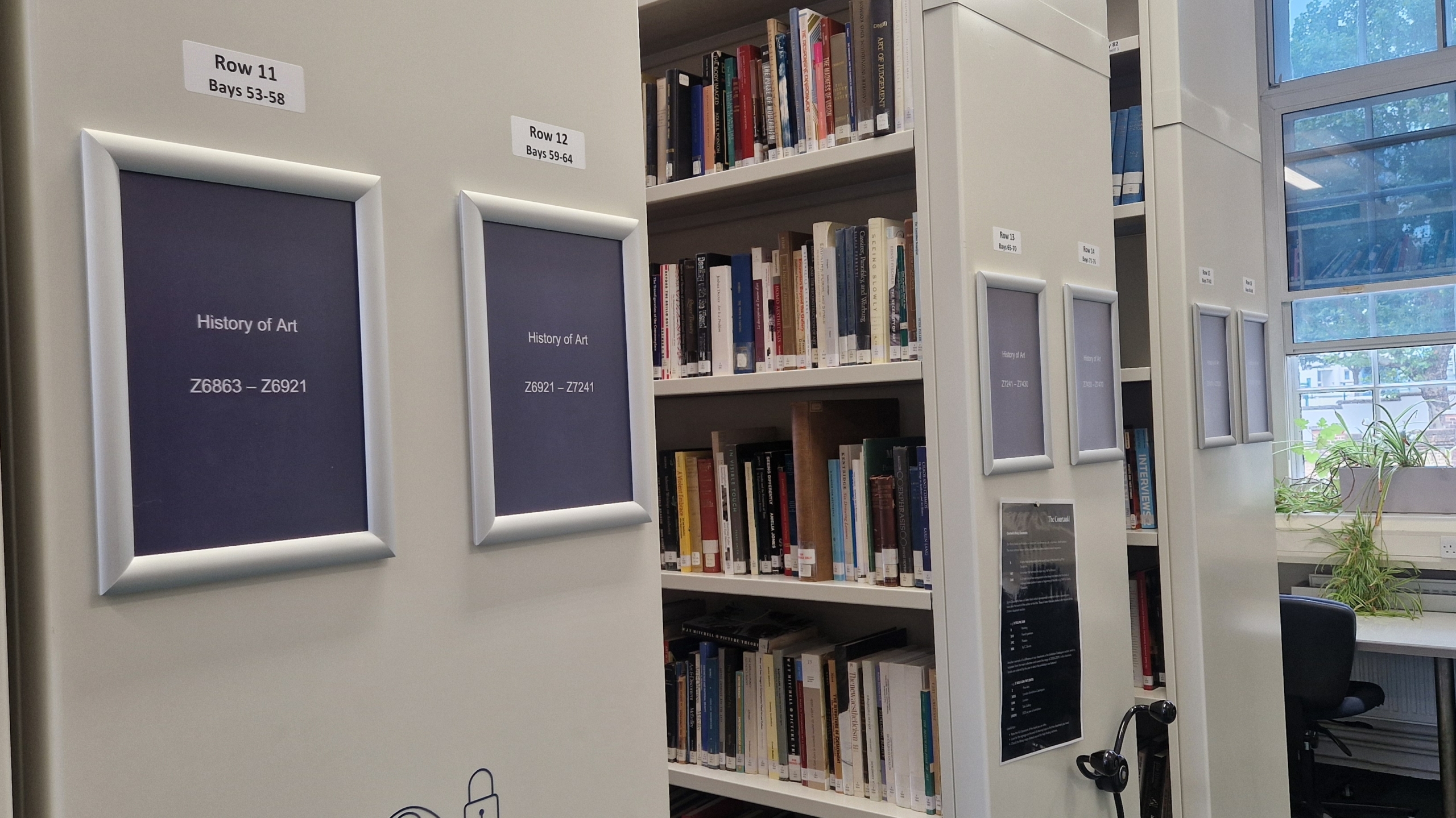
Book a Librarian, Royal Literary Fund Fellows, and Academic Skills
A range of support is available to students, including:
- Book a Librarian
- Support for referencing
- Royal Literary Fund Fellows
- Academic Skills Tutor
- Reading Lists for your assigned readings
If you have any questions, please get in touch: library@courtauld.ac.uk
Book a Librarian
We offer one-to-one support for Courtauld students looking for assistance with finding books, articles, images, scholarship, or art. Learn how to become a powerful library researcher and other digital and information skills. To book a 50 minute appointment:
- Check availability through our online calendar. Bookings open on Wednesday afternoons for the following Monday-Friday.
- Book the session that suits you. The booking system shows the next available appointment. If no appointments are shown, please check again later.
- Tell us how you would like us to help you.
- We email you to confirm your booking. The session will take place through Microsoft Teams unless you specify an in-person appointment is your preference. Please make sure that you are signed into Teams ahead of your appointment.
If you need assistance please contact us.
Support for Referencing
We can provide support with referencing at Book a Librarian appointments, but we have a dedicated Referencing webpage with lots of guidance which will hopefully answer most of your questions.
Royal Literary Fund (RLF) Fellows
Courtauld students have access to one-to-one writing support from our Royal Literary Fellows (RLF), Emily Berry and Joe Dunthorne—both professional writers.
In addition, the RLF website offers a guide to writing essays, which we encourage you to explore.
Booking an Appointment
To book a session, please contact only one of the Fellows directly, as they manage their own schedules:
- Emily Berry
- Emily.Berry@rlfeducation.org.uk
- Available : Mondays (Remote) and Thursday (at Vernon Square)
- Joe Dunthorne
- Joe.Dunthorne@rlfeducation.org.uk
- Available at the Vernon Square campus: Tuesdays and Fridays
Note: The @rlfeducation.org.uk email addresses are used at the request of the tutors, as they are appointed through the Royal Literary Fund (RLF). Although they are based at the Courtauld and work exclusively with Courtauld students, they operate independently of Courtauld IT systems.
Appointments are in high demand—especially near essay deadlines—so we recommend booking well in advance. If you need to cancel, please notify your Fellow as soon as possible so the slot can be offered to another student.
What They Offer
The Royal Literary Fellows can help you:
- Enhance your academic writing style and clarity
- Strengthen your argument and structure
- Develop effective reading strategies
- Organize your material more efficiently
- Build confidence in your writing process
- Please note: This is not a proofreading or editing service.
- To make the most of your session, we recommend sending a sample of your written work in advance.
Eligibility and Frequency
Writing support is available to all Courtauld students, from BA to PhD level.
Academic Skills Support
One to one support is available for students who feel they need some additional assistance with academic writing conventions, speaking for presentations, or any other academic skill.
How to book an appointment:
Email our Academic Skills Tutor, Anjali Thakariya (Anjali.Thakariya@courtauld.ac.uk), outlining the course you are studying, assignment details, and what you would like to focus on. You can choose to have your work looked at via email or if the appointment is in person send no more than two pages three days before the appointment. Please note appointment requests and support via email must be made no less than a week before deadlines. If you have a quick question this can be answered via email at any point in the writing process.
What to expect:
The aim is to help you to improve your academic skills. If you wish to focus on your written work, you will need to send a sample of your writing. This should be a maximum of 2 sides of A4. The tutor will be happy to look at your work or discuss any skills issues with you. At the end of the session they will try to summarise the areas in which you can improve future pieces of work. Please do not expect the tutor to simply correct and proof-read your essay or to improve the subject content.
What you can do before your consultation:
Please check your written work carefully before you come. For example, use your spell-check and grammar-check facilities on Microsoft Word. If you have lots of careless grammar and spelling mistakes, there will be no time left to discuss more important aspects of your work such as academic conventions, structure and your writing style. Also, try to identify areas of academic skills or language you have particular problems with, and come with some specific questions if possible.
Personal Tutors
If you want to address an academic or pastoral issue, you can also speak to your Personal Tutor. Please email them for an appointment.